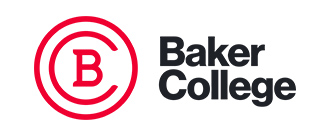Are you interested in learning about human behavior and development and intend to pursue a career in counseling or a related field? If so, then you might benefit from the studies offered in Baker College's Bachelor of Science in Psychology program. Read more about this online bachelor's degree program here.
<h2 id="section---FrequentlyAskedQuestions">Frequently Asked Questions</h2>
<h3 id="section---WhatKindOfProgramIsIt">What Kind of Program Is It?</h3>
<p>Baker College's Bachelor of Science in Psychology program is designed to provide you with a foundational education in basic psychology theories, practices, and schools of thought. Topics you will likely study include personality development, human development, behavior and brain processes, the psychology of thought, learning theories, pathopsychology, human sensory perception, and cultural diversity. You can also select courses addressing organizational psychology, sports psychology, human sexuality, child psychology, or cognitive behavior therapy. An integrative seminar allows you to demonstrate your understanding of methods and concepts studied throughout the program. You will also take courses in math, communications, literature, English, and philosophy.
</p>
<h3 id="section---WhatAreThePrerequisites">What Are the Prerequisites?</h3>
<p>Strong organizational, communication, and problem solving skills are important before enrolling in this bachelor's degree program. You might also have taken some previous courses in psychology and have a desire to help people.
</p>
<h3 id="section---WhatAreTheCourseRequirements">What Are the Course Requirements?</h3>
<p>To earn Baker College's Bachelor of Science in Psychology, you must complete a total of 180 credits. This total includes 84 credits in the major area of study, 72 credits in the general education curriculum, and 24 credits in electives.
</p>
<p><u>Core Courses</u>
</p>
<p />
<table border="1"><tr><th>Course Code</th><th>Course Title</th></tr>
<tr><td>MTH 401</td><td>Statistical Methods</td></tr>
<tr><td>SY 121</td><td>History of Psychology</td></tr>
<tr><td>PSY 251</td><td>Cognitive Psychology</td></tr>
<tr><td>PSY 311</td><td>Abnormal Psychology</td></tr>
<tr><td>PSY 336</td><td>Psychology of Gender</td></tr>
<tr><td>PSY 355</td><td>Personality Psychology</td></tr>
<tr><td>PSY 366</td><td>Research Methods I</td></tr>
<tr><td>PSY 367</td><td>Research Methods II</td></tr>
<tr><td>PSY 381</td><td>Cross-Cultural Psychology</td></tr>
<tr><td>PSY 391</td><td>Bio-Chemical/Neural Psychology</td></tr>
<tr><td>PSY 431</td><td>Physiological Psychology</td></tr>
<tr><td>PSY 441</td><td>Sensation and Perception</td></tr>
<tr><td>PSY 442</td><td>Learning and Memory</td></tr>
<tr><td>PSY 445</td><td>Motivation and Emotion</td></tr>
<tr><td>PSY 451</td><td>Psychopharmacology for Psychology Majors</td></tr>
<tr><td>PSY 491</td><td>Senior Seminar: Psychology</td></tr>
<tr><td><b>Select five of the following courses:</b></td><td /></tr>
<tr><td>PSY 101</td><td>Human Relations</td></tr>
<tr><td>PSY 201A</td><td>Cognitive-Behavior Therapy</td></tr>
<tr><td>PSY 211</td><td>Psychology of Death and Dying</td></tr>
<tr><td>PSY 231</td><td>Organizational Psychology</td></tr>
<tr><td>PSY 271</td><td>Sports Psychology</td></tr>
<tr><td>PSY 335</td><td>Human Sexuality</td></tr>
<tr><td>PSY 350</td><td>Child Psychology</td></tr>
<tr><td>PSY 351</td><td>Adolescent Psychology</td></tr>
<tr><td>WRK 301</td><td>Internship</td></tr>
</table><p><u>General Education Courses</u>
</p>
<p />
<table border="1"><tr><th>Course Code</th><th>Course Name</th></tr>
<tr><td>ELECT 111A</td><td>Scientific Inquiry Elective</td></tr>
<tr><td>ELECT 131A</td><td>Global and Cultural Perspectives Elective</td></tr>
<tr><td>ELECT 131B</td><td>Global and Cultural Perspectives Elective</td></tr>
<tr><td>ELECT 161A</td><td>Computer Literacy Elective</td></tr>
<tr><td>ELECT 161B</td><td>Computer Literacy Elective</td></tr>
<tr><td>ELECT 161C</td><td>Computer Literacy Elective</td></tr>
<tr><td>ENG 101</td><td>Composition I</td></tr>
<tr><td>ENG 102</td><td>Composition II</td></tr>
<tr><td>HUM 401A</td><td>Philosophy of Ethics</td></tr>
<tr><td>INF 161</td><td>Technology and Society</td></tr>
<tr><td>MTH 108</td><td>College Mathematics I: Reasoning and Application</td></tr>
<tr><td>MTH 109</td><td>College Mathematics II: Algebra and Trigonometric Concepts</td></tr>
<tr><td>PSY 111</td><td>General Psychology</td></tr>
<tr><td>PSY 221</td><td>Developmental Psychology</td></tr>
<tr><td>PSY 401</td><td>Social Psychology</td></tr>
<tr><td>SOC 321</td><td>Cultural Diversity</td></tr>
<tr><td>SPK 201</td><td>Oral Communication</td></tr>
<tr><td><b>Select one of the following courses:</b></td><td /></tr>
<tr><td>SPK 211</td><td>Group Dynamics</td></tr>
<tr><td>SPK 401</td><td>Presentational Speaking</td></tr>
<tr><td><b>Select two of the following courses:</b></td><td /></tr>
<tr><td>ENG 221</td><td>Critical Writing and Literary Analysis</td></tr>
<tr><td>ENG 231</td><td>Language and Culture</td></tr>
<tr><td>ENG 311</td><td>Creative Writing</td></tr>
<tr><td>ENG 411</td><td>Foundations of Mass Communication</td></tr>
<tr><td>LIT 301</td><td>Contemporary Literature</td></tr>
<tr><td>LIT 331</td><td>American Literature I</td></tr>
<tr><td>LIT 332</td><td>American Literature II</td></tr>
<tr><td>LIT 401A</td><td>Survey of English Literature</td></tr>
<tr><td>LIT 411</td><td>Studies in Literature</td></tr>
<tr><td>WRI 115</td><td>Workplace Communication</td></tr>
<tr><td>WRI 301A</td><td>Report Writing</td></tr>
</table><h3 id="section---WhatCouldIDoAfterIGraduate">What Could I Do After I Graduate?</h3>
<h4 id="section---CareerOpportunities">Career Opportunities</h4>
<p>Once you successfully complete Baker College's Bachelor of Science in Psychology program, you could be able to pursue entry-level employment in a variety of fields. Your work could include using your knowledge of human behavior.
</p>
<p>Positions you could pursue include:
</p>
<ul><li>Case Worker
</li><li>Community Relations Officer
</li><li>Human Services Advocate
</li><li>Market Researcher
</li><li>Retail Sales Representative
</li></ul><h4 id="section---AdvancedDegrees">Advanced Degrees</h4>
<p>After earning the Bachelor of Science in Psychology from Baker College, you could continue your studies in a master's degree program. The curriculum of a master's degree program could offer the opportunity to study more advanced theories and concepts in the field of psychology. Examples of degrees you could seek include:
</p>
<ul><li>Master of Science in Psychology
</li><li>Master of Science in Counseling
</li><li>Master of Science in Applied Psychology
</li><li>Post Baccalaureate Certificate in Addiction Studies</li></ul>


.svg)


